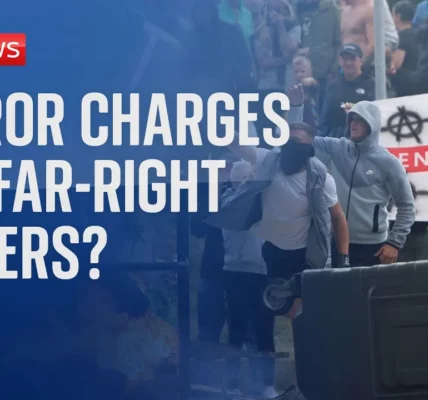Middle East Conflict: Analyzing Recent Developments and Implications

The conflict in the Middle East has once again taken center stage in global news, highlighting the complexities of military engagements, political strategies, and international relations. This article delves into the latest developments, focusing on Israel’s military response to threats, the implications of UK and US involvement, and the broader geopolitical landscape.
Introduction to the Current Situation
The ongoing tensions in the Middle East, particularly involving Israel, Iran, and Hezbollah, have escalated significantly. Recent missile strikes and military operations have reignited discussions around defense capabilities, regional stability, and international alliances. As Israel considers its next moves in retaliation for attacks, the implications for the UK and US, along with the potential for increased conflict, remain critical topics of discussion among political analysts and military experts.
Israel’s Military Response
Following a significant missile strike attributed to Iran, Israel’s leadership is weighing its retaliation options. The Israeli military has confirmed the deaths of eight soldiers in recent clashes, raising concerns about the effectiveness of their operations against entrenched Hezbollah forces.
Casualties and Ground Operations
The recent ground operations in Lebanon have led to heavy casualties on both sides. Israel’s military strategy has involved:
- Engaging in direct combat with Hezbollah operatives.
- Attempting to dismantle Hezbollah’s extensive tunnel network.
- Utilizing airstrikes to target missile launch sites.
However, these operations have come at a cost, with significant losses reported, raising questions about the sustainability of this military approach.
Political Implications
The political ramifications of Israel’s actions are profound. Prime Minister Benjamin Netanyahu faces pressure both domestically and internationally as he navigates these military responses:
- Domestic unrest due to rising casualties among Israeli soldiers.
- International scrutiny regarding the potential escalation of conflict.
- Calls for a reassessment of military alliances, particularly with the US, regarding support for strikes against Iran’s nuclear capabilities.
The Role of UK and US Forces
As Israel contemplates its military response, concerns have arisen regarding the UK’s ability to support its ally effectively. Reports indicate that UK forces, including RAF Typhoons, may not be adequately equipped to intercept ballistic missiles, raising questions about their defense capabilities.
UK Military Capabilities
The Telegraph has highlighted significant limitations in the UK’s military capacity to defend Israel against missile threats:
- RAF Typhoons are not designed to intercept ballistic missiles.
- Royal Navy’s Type 45 destroyers also lack the capability to engage ballistic missile threats.
- This raises concerns about future UK involvement in Middle Eastern conflicts.
US Political Landscape
In the US, the political climate is charged as the nation approaches a significant election cycle. The divide within American politics may influence how the government responds to the escalating situation in the Middle East:
- The Biden administration is urging restraint on military action, particularly regarding Iran’s nuclear facilities.
- Tensions are high as various factions within the US advocate for differing levels of support for Israel.
- The upcoming election may further complicate foreign policy decisions as candidates navigate public opinion on military interventions.
Potential Terror Threats in the UK
As tensions rise in the Middle East, security experts in the UK warn of increased risks of domestic terror attacks. The Community Security Trust has reported a surge in anti-Semitic incidents, linking them to the ongoing conflict.
Public Safety Concerns
With the anniversary of significant attacks approaching, there are heightened fears among Jewish communities in the UK:
- Increased security measures are being implemented around synagogues and community centers.
- The potential for extremist groups to exploit the conflict for domestic agendas is a growing concern.
- Public discourse surrounding the conflict has become increasingly polarized, further complicating community relations.
Conclusion: The Path Forward
The situation in the Middle East remains dynamic and fraught with uncertainty. Israel’s military actions, the role of UK and US forces, and the potential for domestic unrest in the UK all contribute to a complex geopolitical landscape. As nations navigate these challenges, it is essential to promote dialogue and seek diplomatic solutions to prevent further escalation.
Stay informed on the latest developments by exploring our related articles on military strategy, international relations, and security analysis.
“`




